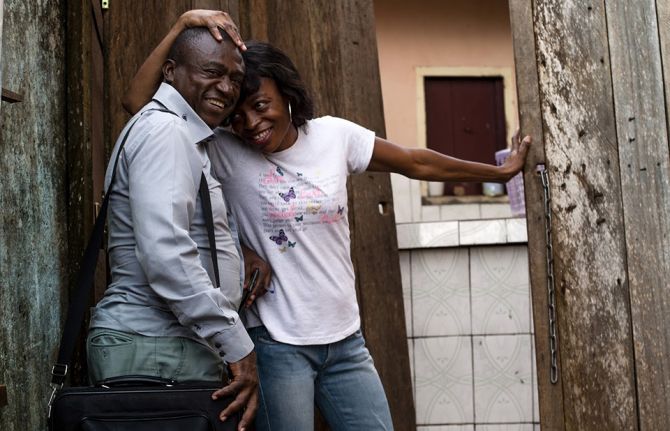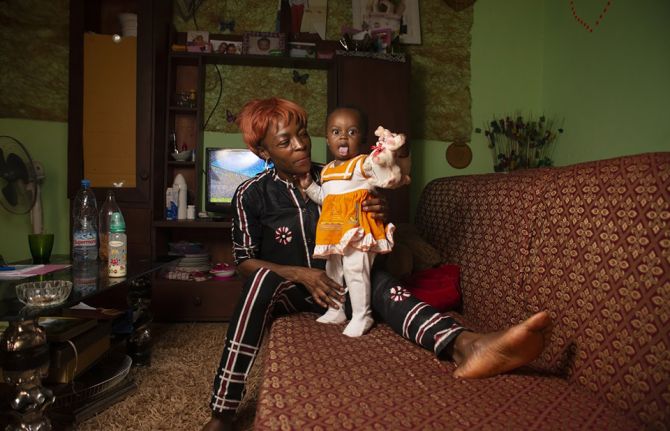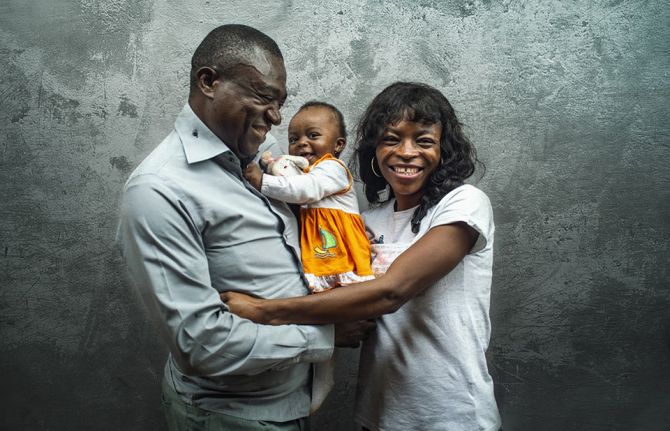



Feature Story
The right to disclose your own status
02 August 2019
02 August 2019 02 August 2019At 17, preparing for her baccalaureate, Francine Nganhale was carefree. She followed her classmates out of curiosity to the local hospital in Yaoundé, Cameroon, since they had heard about an HIV awareness campaign with free testing.
“This was my first time getting an HIV test and I had no expectations,” she said.
When the results came back, her test was inconclusive. She retook the test and at the fourth try, her result was positive. “The explanations given to me throughout the process piqued my interest and I became much more motivated to find out more,” she said.
Ms Nganhale felt scared and she admits being clueless about what to do next. A doctor walked her through the process and gave her a lot of information about HIV. It suddenly dawned on her that her three-year old son, who was often sick, had never been tested for HIV. He tested positive and both started treatment.
The hard part for her was telling her mother. She postponed telling her, but she felt more and more isolated. And she recalls hearing negative comments from her extended family about people living with HIV. “I had decided to challenge myself and live a long and healthy life and no one would deter me,” she said. When her mother finally found out, she told others about her daughter’s HIV status. Regardless, Ms Nganhale forged ahead. She holds no grudges, saying that her mother cared for her and her son financially for years.
As a social worker, Ms Nganhale works mainly with people living with HIV, raising awareness and distributing HIV treatment.
Her husband is also a social worker overseeing 106 Cameroonian HIV associations. He can relate to his wife’s experience. Charles Noussi used to be a professional football player in the Maldives. During a routine team medical check-up, all his teammates underwent a battery of tests. The next day, when he showed up for practice, he bumped into the manager, who forbade him to train with the others.
“I had no clue what was going on,” he said. “Meanwhile I slowly realized that most people were hiding something from me.” He wanted to get to the bottom of it and asked to see the medical team responsible for the check-up. That’s when finally someone told him his HIV-positive status.
“I suddenly realized that I was the last to know,” Mr Noussi said. The news only got worse. He had 48 hours to pack up and leave the country. “Do you know how hard it is to abandon a career I loved and lose my good salary all because of my HIV status?” he asked. “It broke my heart and more.”
A sponsor helped him flee to Thailand, where he accessed health services. “So many people were supporting me and reassuring me,” Mr Noussi said. Quickly, he joined an HIV advocacy group. “After a year, I told myself that perhaps I should use my knowledge and return to my home country,” he said. Again, mentalities differed in Cameroon. He faced discrimination and despite being healthy and open about his HIV status, many of his acquaintances and friends abandoned him.
“Thank goodness my mother helped me a lot, not only on a nutritional level, but also socially and psychologically,” he said.
Two decades later, he believes HIV-related stigma has decreased in Cameroon. HIV treatment is free, unlike many years ago, when he paid for everything himself. No doubt about it, he said, knowing your status is crucial.
His wife agrees. “No need to tell someone not to worry—it's normal to worry,” she said. “What's key is reassuring someone that they are in control of their life.”
Related story: A tribute to Charles Domingo Noubissi



